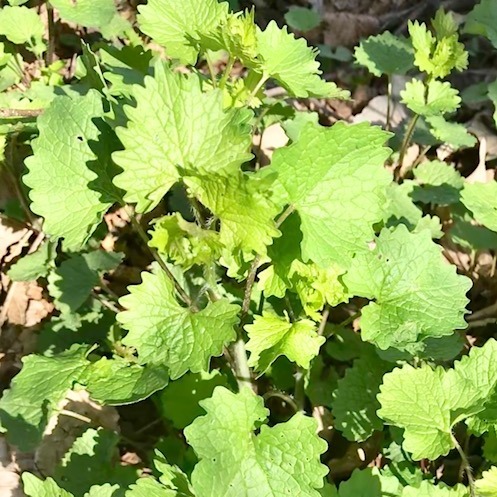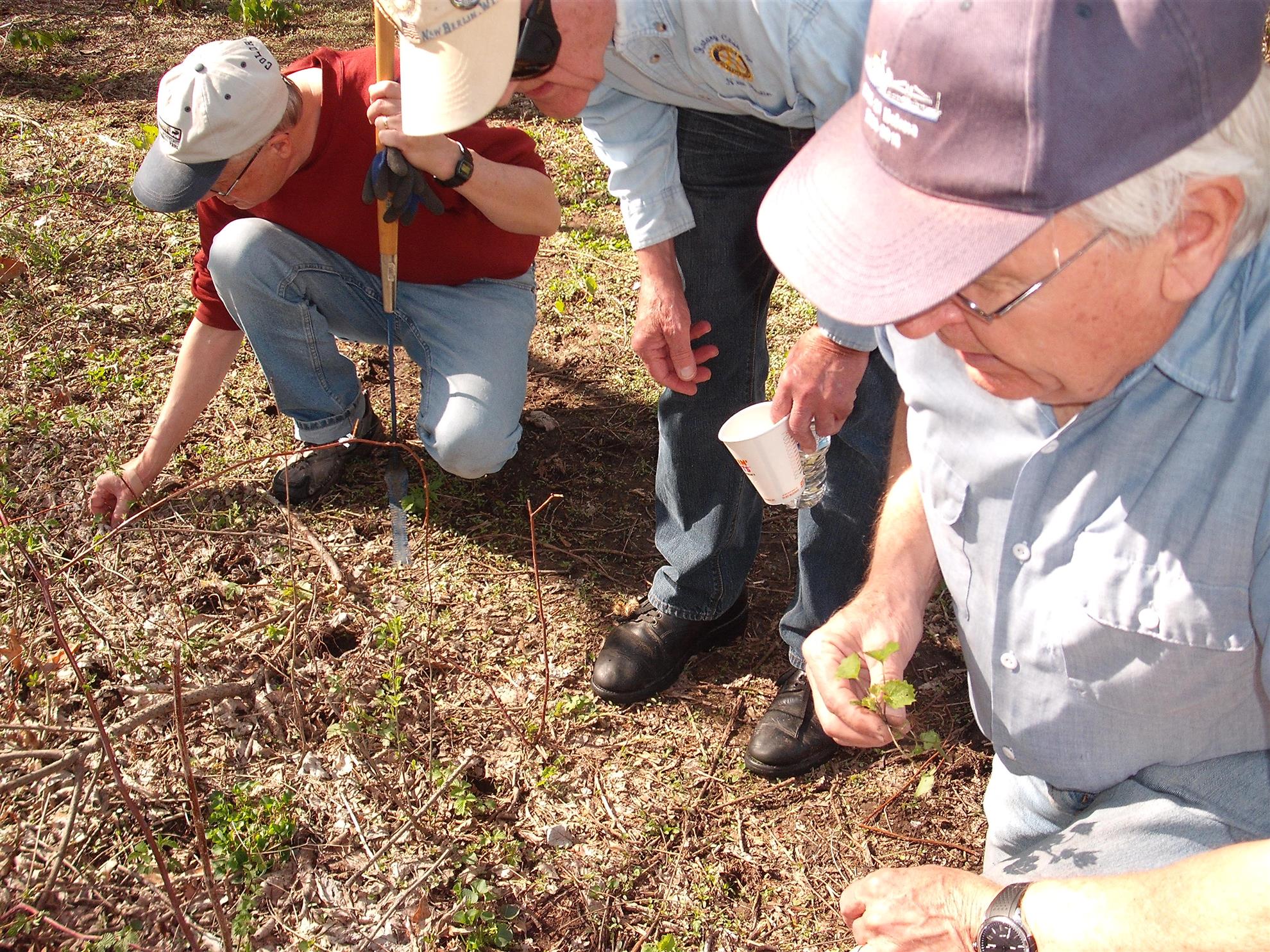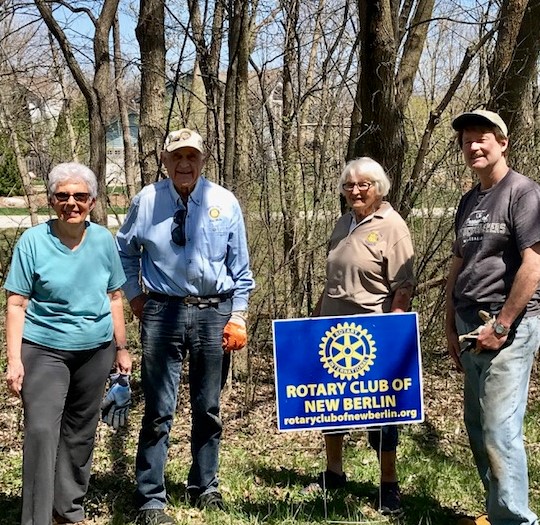Rotarians Get Their Hands Dirty for a Good Cause
It appears innocent enough.
 The small plant has several stems and broad leaves. Its lime green color is augmented by attractive white flowers in late spring. Unfortunately, it -- garlic mustard -- is anything but innocuous. The nonnative plant can quickly overtake a wooded area, pushing out native plants in the process.
The small plant has several stems and broad leaves. Its lime green color is augmented by attractive white flowers in late spring. Unfortunately, it -- garlic mustard -- is anything but innocuous. The nonnative plant can quickly overtake a wooded area, pushing out native plants in the process.Garlic mustard was the focus of an annual weed-pulling event May 5 that drew several Rotarians and other volunteers. They spent three hours attacking the plants in the Weatherstone section of New Berlin.
The project is the brainchild of Weatherstone resident Bill Moore. He first noticed the rampaging effect of garlic mustard during a regular visit to Omaha. The woods he enjoyed walking through became carpeted with garlic mustard in the space of one year.
Later, Moore attended a presentation in Milwaukee on invasive plants. The program, which focused on buckthorn and garlic mustard, got him thinking about his own neighborhood. For the past 15 years, the now-retired airline pilot has spearheaded efforts to eradicate garlic mustard. Left alone, "it basically takes over everything and doesn't allow anything to grow," Moore says. (A similar effort in early winter targets buckthorn. Both projects are under the auspices of the Weatherstone Homeowners' Association.)
 Which is how those four Rotarians found themselves on their hands and knees plucking plants on a warm and sunny Saturday. Also assisting were several Weatherstone residents and a handful of Boy Scouts. In this image Moore (right) explains how to identify and remove the plant.
Which is how those four Rotarians found themselves on their hands and knees plucking plants on a warm and sunny Saturday. Also assisting were several Weatherstone residents and a handful of Boy Scouts. In this image Moore (right) explains how to identify and remove the plant.A recent storm had left the ground moist, which made plucking fairly easy. The group started at Weatherstone Park. Moore pointed out a section of woods cleared in 2017. Bloodroot, a flowering plant, is popping up were once the ground was solid garlic mustard. "Those are some very happy plants," Moore says.
 Attention shifted to a wooded area along Weathersthone Court. Along with the garlic mustard, the group also removed sections of barbed wire fencing left over from the farming days.
Attention shifted to a wooded area along Weathersthone Court. Along with the garlic mustard, the group also removed sections of barbed wire fencing left over from the farming days.Rotarians assisting included Dianne Moore, Art Angove, Audrey Judds and Tom Fuszard.
Although he expects some of that garlic mustard to return, Moore says native plants now have a chance to grow.
Budget constraints hamper the Parks Department's efforts against invasive plants, Moore says. Therefore, it's important for volunteers to assist in the efforts. It's that type of volunteering that members of the Rotary Club of New Berlin are happy to do.